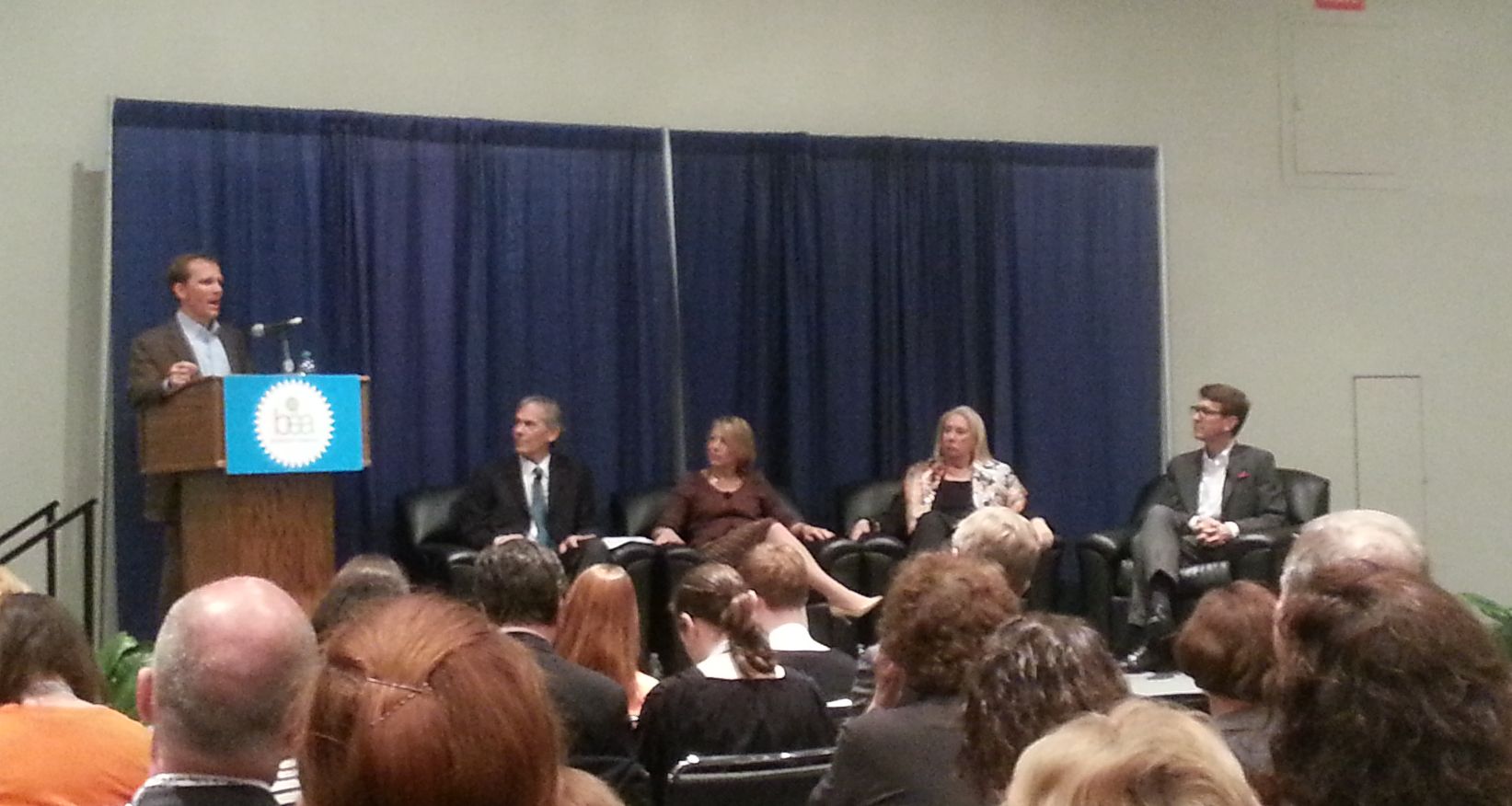On Wednesday afternoon, Open Road Media CEO and co-founder Jane Friedman demonstrated her commendable skills in repeating the same talking points that she delivered at IDPF last year: (1) don’t ignore the elephant in the room (that is, the e-book), (2) we have to think of books in terms of p and e, and (3) Open Road is not a self-publisher. One wonders how many times she has enacted the part of a tottering robot. At least she had the honesty to tell the audience, “All of what you’ve heard so far, I’ve been hearing for 40 years.” But this year, Friedman was speaking before booksellers instead of wild-eyed evangelists who would erect a small nation of geodesic domes if it meant a universe where people read nothing but digital.
Two booksellers attempted to tell Friedman very politely that she was a misguided fool on the subject of e-book implementation in independent bookstores. The first bookseller was a respectful man with long gray hair who informed Friedman that customers would happily download e-books from their computers rather than patronize a physical bookstore. “it’s too easy to get somewhere else,” he said.
“You’re dealing with a universe that’s telling you what they want,” replied Friedman.
This was a sharp contrast to John Sargent’s strepatements this morning, in which he declared with confidence that “the growth of e-books is pretty much pegged.” But then Friedman keeps the Open Road portfolio tied up in digital only and has a natural interest in ignoring any stagnation realities if it means squeezing a few more dollars. (Hachette Book Group CEO Michael Pietsch was careful to point out, “Our job is to be nondenominational.”)
When the first bookseller respectfully shambled away from the microphone, Word Brooklyn manager Emily Pullen stepped up to point to the problem more lucently: “If I were to sell an e-book to every consumer coming through, I would go out of business in a week.” Friedman replied, “Not all e-books are 99 cents,” which severely misses one of the chief reasons why consumers are attracted to e-books.
If that condescending remark wasn’t bad enough, Friedman continued by telling Pullen, “if you sell one e-book to a customer in your store, that person comes back to your store and downloads ten books.” But there’s a fundamental problem with this thesis. When the consumer can simply press a button and have a new book turn up, why would she want to spend the time and gas to hit an independent bookstore? And why should the independent bookseller have any reason to shack up with a snake oil saleswoman — indeed, one who referenced “back to the future” three times during the interminable hour — who undercuts her business.
For the bookseller who was concerned, Friedman took a cue from the 1990s informercial king Tommy Vu. She couldn’t explain to the booksellers in person why her strategy would work, but insisted that they come to her seminar…er…BEA party.
This was the high point in a fairly dull panel moderated by a gentleman who was dull in his relentless agreement with various points and whose questions revealed the regrettable patina of inexperience. I wanted to scream. So did several other booksellers, many of whom offered audible sighs at the people entrusted to “shape the future of the book.” Well, I’ve seen the future. It involves smug people making enemies out of booksellers with hubris (“Maureen Dowd, who is a columnist at the New York Times” — yeah, I think most literate people know this), left in the cold when the bubbles have long fizzled out in their champagne.
